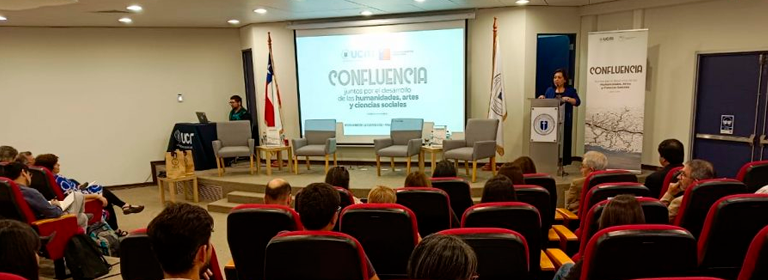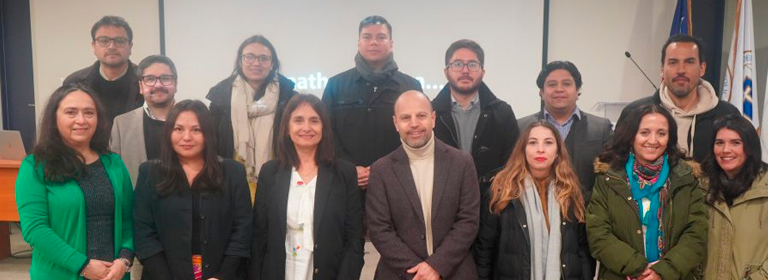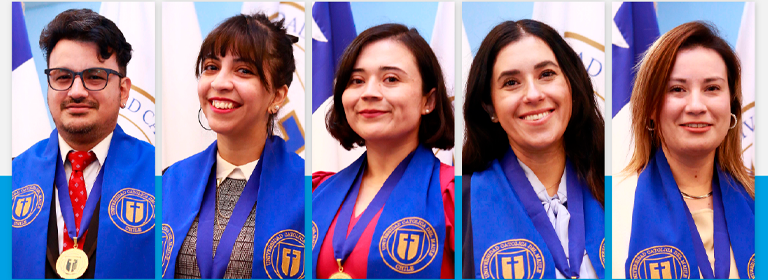In a packed auditorium, three doctoral students from the Universidad Católica del Maule discussed gender stereotypes and the lack of female role models as obstacles faced by young women scientists.
 The Universidad Católica del Maule (UCM) closed Women’s Month with a crowded discussion, which offered an open microphone to the attendees. The activity, entitled “Ingenious: Students who dare in R+D+i+e”, was organized by a project that will install a Gender Observatory in the campus and summoned more than one hundred students.
The Universidad Católica del Maule (UCM) closed Women’s Month with a crowded discussion, which offered an open microphone to the attendees. The activity, entitled “Ingenious: Students who dare in R+D+i+e”, was organized by a project that will install a Gender Observatory in the campus and summoned more than one hundred students.
“I had participated in these events, but as an organizer, never as a main actor. It was nice to share my experience with other young people who are starting on the path of science,” said Yoleidy Huérfano, a student of the PhD in Applied Mathematical Modeling taught at the institution.
The so-called “ADA” observatory, named after the first female computer programmer, Ada Byron, will collect data to characterize the reality of women in science, where challenges such as gender stereotypes, discrimination and the lack of female role models persist.
“When I entered the PhD there were only two women. This has improved, because gender equity was included in the curriculum and somehow in the selection of participants. This year four men and four women entered, thanks to these university policies”, said Fiorella Roco, a PhD student in Engineering, who also participated as a panelist.
Along the same lines, Josefa Rojas, a PhD student in Translational Biotechnology, considered it fundamental that UCM continues to remove obstacles in technology and entrepreneurship for young women scientists.
“I have seen many initiatives, such as safe space talks, the contest ‘Do Your Thesis in Innovation’ and this same project in gender, which show that the university is moving. I think it is very important to make women visible in STEM or in 100 percent mathematical fields, where we are less represented,” she said.
“Believing the story”
 While there are structural and political barriers that hinder equality between men and women in almost all spheres of life, confidence in one’s own abilities is a determining factor for success.
While there are structural and political barriers that hinder equality between men and women in almost all spheres of life, confidence in one’s own abilities is a determining factor for success.
“The participants spoke about a pattern that is one of the major problems we women face when we take on a leadership role or decide to pursue a career or profession, and that has to do with believing the story. Undoubtedly, the fact that they said it in first person is tremendously important, because we begin to recognize ourselves and identify a problem that we can address,” said Dr. Mary Carmen Jarur, director of the initiative financed by the National Agency for Research and Development (ANID).
Jarur pointed out that the discussion, which had the collaboration of the Directorate of Gender Equity and Diversity and the Directorate of Innovation, Development and Technology Transfer, made it possible to identify “facilitating elements within the institution, such as the Learning Support Center, which accompanies the student trajectory of young women, and on the other hand, our training model, which promotes research and innovation with a gender perspective,” she said.













